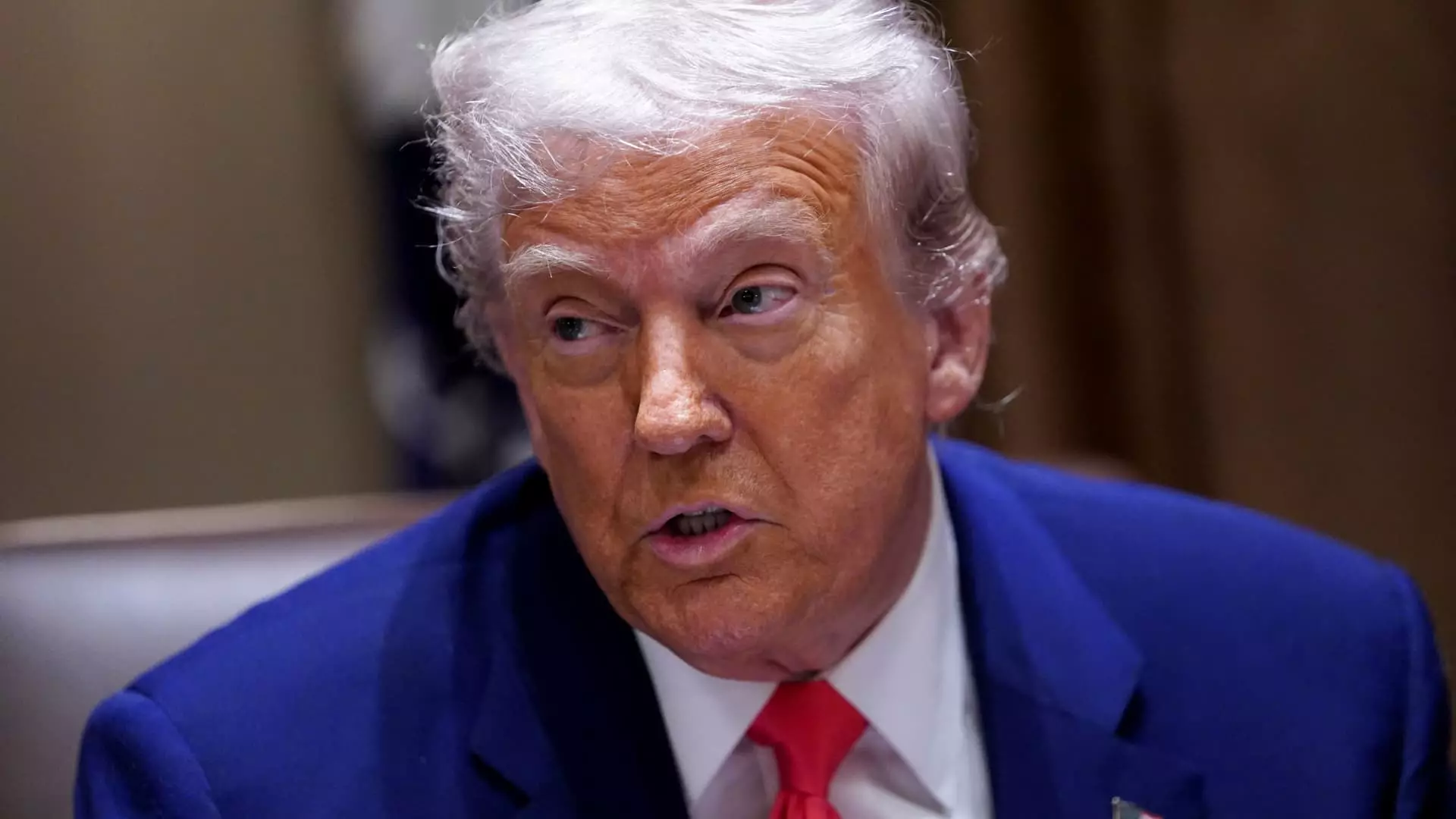In an age where technology drives innovation and connects people across the globe, the recent decisions regarding tariffs by the Trump administration raise serious concerns about economic stability and the future of the American tech industry. While the U.S. Customs and Border Protection agency has granted exemptions for essential gadgets like smartphones and computers, one must ask: at what cost? The 145% tariffs imposed on Chinese products could have devastated tech giants, threatening job security and economic growth.
These tariffs are not mere percentages—they symbolize a volatile power struggle, with the consumer ultimately facing the brunt of poor decision-making. The exemption for specific technologies might seem like a victory for companies like Apple, which heavily rely on Chinese manufacturing. Still, this short-term fix glosses over the longer-term implications of an unpredictable trade policy that appears almost reckless.
Impact on Tech Giants and Market Dynamics
Dan Ives, a tech research head at Wedbush Securities, hinted that the exclusion from tariffs is a “game changer.” However, one must consider why such spectacular measures were necessary in the first place. The impacts of Trump’s swift tariff policies are insidious; Apple lost an eye-watering $640 billion in market value following the initial announcement, retreating from a once-strong position. This brings to light a fundamental flaw in the government’s approach: leveraging the tech sector as a pawn in a broader geopolitical game jeopardizes not only investment but the very innovation we depend on.
With the potential cost of an iPhone soaring to $3,500 under the original tariff plan, it’s apparent that these trade tactics could have driven a wedge between consumers and the tech innovations they cherish. A society that relies on affordable technology for connectivity cannot afford such unwarranted economic strain.
The Broader Economic Fallout
Amid tariffs, the volatility seen in the stock market begs for scrutiny. The S&P 500 experienced a staggering drop of over 5% just days after Trump’s announcement, as uncertainty clouded Wall Street. Such market swings diminish investor confidence and may lead to broader economic distress, impacting the ordinary American worker.
Investors, by instinct, shifted focus to safer assets, as evidenced by yields soaring by over 50 basis points—the most significant surge recorded. The bond market’s response indicates a lack of faith in the current economic policies, while simultaneously reveals just how fragile our reliance on technology manufacturing truly is. This upheaval suggests stakeholders and policymakers are out of sync with economic reality, prioritizing confrontational diplomacy over collaborative growth.
Reversals and Compromises: A Desperate Maneuver
In light of the backlash, the administration introduced a brief respite with a 90-day tariff reprieve in favor of soothing international relations. This especially points to a worrying realization that economic strategies built on volatility need urgent recalibration. In an increasingly interconnected global market, maintaining a balance rather than resorting to drastic punitive measures is crucial.
However, while the 10% universal tariff may sound less daunting, it’s essential to recognize that the core principles of free trade are being compromised. The decision to selectively exempt goods ought to raise alarm bells—the unpredictability of tariff imposition creates an unstable environment for businesses, resulting in the potential chilling effect on both domestic and foreign investments.
The Need for Predictable Economic Policies
As we inch towards 2025 and the ramifications of these tariffs linger, the overarching demand for rational economic policies becomes clear. Stakeholders necessitate stability, not fluctuations based on political whims. Employers and workers are left in limbo, caught in a strategy that seems increasingly like an economic game of roulette, only with more at stake.
One must fervently advocate for policies that promote free trade while protecting American interests, rather than resorting to an archaic model where tariffs serve as fists swinging blindly in the dark. In the digital age, cooperation, rather than isolationism, reflects the path to sustainable growth, innovation, and prosperity for the tech industry and the lives intertwined with it.

